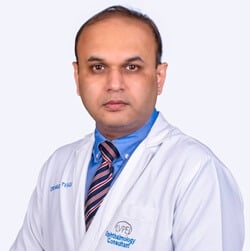Kreissig Award for Excellence in Retinal Surgery
This award, established by Ingrid Kreissig, MD in 2020 with an endowment through the ARVO Foundation, recognizes the next generation of curious, enterprising investigators who seek to optimize functional outcomes for patients needing retinal surgery.
The purpose of the award is to recognize investigators who have expanded or enhanced scientific knowledge related to the understanding of:
a) The rationale and mechanisms for a minimal approach in retinal surgery
b) An innovative surgical approach to retinal disease
c) The functional results after the newly developed retinal surgery
The recipient will receive a $30,000 honorarium. The first award was issued in 2021.
Award qualifications
This award recognizes excellence in the understanding of the mechanisms of retinal disease requiring surgical management, innovative approaches to management, and/or outcomes of surgical treatment.
Eligibility
Eligibility criteria include:
- Must be a university/academic-based clinician-investigator having specialized in retina
- Must be practicing at least 10 years as a full trained ophthalmologist specialist in the posterior segment surgery of the eye
- Must be an ARVO member
- Must be age 55 or younger at the time of nomination
- There are no restrictions on citizenship, residency, sex or race
Timeline
Applications open on Aug. 1
Applications close on Oct. 1
Recipients notified in December
2024 recipient
 Mudit Tyagi, MD, is a vitreoretinal surgeon with an interest in retinal surgeries, endoscopic retinal surgeries and in ocular inflammation and retinal infections.
Mudit Tyagi, MD, is a vitreoretinal surgeon with an interest in retinal surgeries, endoscopic retinal surgeries and in ocular inflammation and retinal infections.
Tyagi completed his residency in ophthalmology from B. J. Medical College, Ahmedabad in 2010, and then subsequently a fellowship in vitreoretinal diseases at the LV Prasad Eye Institute (India) from 2010 - 2012. He is currently working as the Head of Retina Services at LV Prasad Eye Institute.
Tyagi is also a Fellow of American Society of Retina Specialists and a recipient of Honours and Senior Honours Award from the American Society of Retina Specialists.

